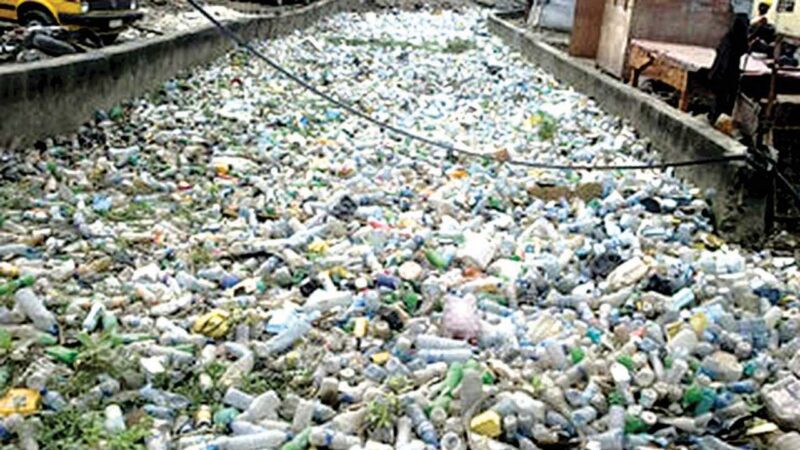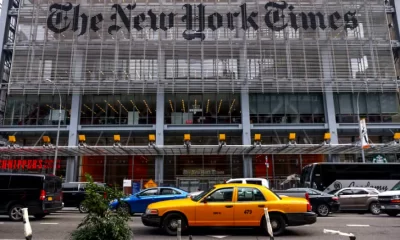Democracy & Governance
Are We Recycling Policies, When We Have Plastic Wastes To Battle? -By Egerson Daniel
The government needs to go back to the drawing board, recall why the UN proposed a drastic reduction of plastic wastes and a ban on plastic bags, then realign accordingly with strategic implementation plan that are achievable rather than recycling policies and regulations while the problem remain constant.

…If we were doing so well with the SDG target goal 14.1 of 2030 Agenda, seeking to prevent and significantly reduce marine pollution as a result of land based activities before 2025, we would not have been in this position in the first place.
In 2019, the United Nations during the Basel Convention called for a global legally binding instrument to address plastic waste which led to the proposed and accepted ban on plastic shopping bags. This was reached on the premises that single use plastic bags affects the marine life almost irrecoverably and there is almost no justification for manufacturing them. In all, the US has a striking exception despite the wide acceptance. In May 2019, 186 countries globally have reached an agreement to achieve sustainable reduction of plastic waste. While china has utterly placed a ban on the distribution of plastics bags, Canada, Taiwan, Israel, West India, Singapore and Bangladesh have taken similar but preliminary actions. For us in Africa, drafting policies or regulatory framework has never been the issues according to Pritish Behuria. It is more of a cultural assimilation however with full knowledge of the determinant, pros and cons; if we are actually ready for implementation or not. The plastic bag ban policy would subconsciously gain acceptance in Africa through the lens of the ecological modernization ideology. However, to make a difference, there are traces of implementation in Botswana, Kenya, South Africa and Tanzania, but this is rather slow. Hypothetically, the indecisiveness of other Africa nations might be bent on an anxious wait for the supposed giant of Africa to lead the way.
Last year, the Federal House of Representative Nigeria passed a bill banning the use of and sale of plastic bags in the country and a deviant to this attracts a 3 year jail term or a fine of N500,000 ($1290.4) or both. The question is, can this be implemented in Nigeria? or this is just some sort of a new well designed policy that would soon take the back page. As of this day, it is already one (1) year gone past, what exactly has happened? Within this space we have rather recorded an increasing varieties of plastic bags and plastics in general to the extent of an Ebayization practice; it can be brought to your door steps if you so desire. I am of the opinion that implementing policies is not just the Nigeria thing, may be it is imprinted somewhere at the concordance of our constitution and we have not taken note of it.
The government needs to go back to the drawing board, recall why the UN proposed a drastic reduction of plastic wastes and a ban on plastic bags, then realign accordingly with strategic implementation plan that are achievable rather than recycling policies and regulations while the problem remain constant. This is how far we have been playing on the gallery, for instance in 1988 the Federal Environmental Protection Agency Decree No.58 was set up for the eventual protection of the environment which was supposedly referred to as a comprehensive and far reaching legislation taking into consideration all forms of waste prevention. The letters of the document was adequately prepared and articulated while compliance and enforcement was next to zero.
Sequel to the prohibition of harmful disposal on the environment, the 1988 Act was demystified and granulated to produce the then Harmful Waste Act which was designed specifically as a special criminal prevention Act to prevent dumping of hazardous waste on land and water. Section 6 of the Act clearly spells out a life imprisonment and a forfeiture of any means of voyage used in the process but it was also on record that there was never a single prosecution made in this regard. Subsequently, in 1992, the Environmental Assessment Decree No 86 was enacted to follow up on FEPA 1988. The Act provides machinery for achieving some aspect of sustainable environmental development as far back as 1992 but that is also how far the degree ever saw the light of its purpose.
Similar to the argument of the United Nations on the harmful destruction of water bodies, the 1992 Act made a provision for the mineral and Mining Act in section 65 prohibiting the pollution of the water sources but this also failed out of share poor implementation and monitoring. In 2007, there was the National Environmental Standards and Regulations Enforcement Agency (Establishment) Act with thirty three (33) regulations spanning from 2009 to 2014 with high hope expectation to trickle down wastes and pollution either directly or indirectly. Specifically there was the National Environmental (Domestic and Industrial Plastic, Rubber and Foam Sector) Regulations, S. I. No. 17, 2011 but the results of achievements with this regulations can be well compared with today’s realities of the general environment.
When we talk of waste production due to unethical single use practice of consuming plastic bags and plastics in general, Lagos state crowns it all. It is the center of major plastic producers and consumers. This should naturally create the drive for setting strategic policies and regulations that would make immediate prevention plan readily available. So we do not have a mega city with a mega problem. Today, we decry of massive waste production of all forms and through variant channels, should we then conclude that the publicness of Lagos policies in this regard is in itself public; nevertheless there are resentment that the state it’s a no man’s land, , every mallam to his own kettle like they phrase go. The mantra of nobody owns Lagos and should not be anyone’s responsibility to make it clean should never be welcomed. But if Lagos happens to be the gathering points of major plastic bags in Nigeria, what has happened to the Lagos State Environmental Protection Agency Law enacted as far back as 1996? It is obvious if it was that functional we won’t have a community of plastic wastes in Agege, Ajegunle, Amukoko, Badia, Bariga, Ijeshatedo/Itire, Ilaje, Iwaya and Makoko.
In the year 2000, the Lagos State Environmental Sanitation laws was developed to tackle the issue from its root. This would have also achieved a far reaching purpose, but on a contrary while the issue remains, the root has shifted and metamorphosed into other issues, part of which is the household plastic bag wastes we are faced with today. The Lagos state government plans to completely phase out the use of plastics by 2023, which is one year after the United Nations target of 2022 which is fair enough but from all indications, with the increase in market demand, consumption and waste we might be far from achievement even by 2030. While the government remains placid, Non-governmental organizations like the Alexander Akhigbe’s African Cleanup Initiative (ACI) have taken to the street, beginning the slums to make resourceful effort in combating the menace. The ACI introduced a Recycles Pay Project in 2019, a plastic fee project that allows people in low-income communities to pay the tuition of their children using recyclables, which gathered and computed as monetary value payable to the school’s account. Also was the case of The Food and Beverage Recycling Alliance (FBRA) in partnership with the Green Janitors Sustainability Initiative that launched a three months Pick-a-Plastic campaign to get rid of plastic wastes in Badagry area of Lagos. These are efforts from Non-governmental organizations.
Plastic wastes which is one of the world’s most pressing environmental challenge has over the years slipped through the pages of polices, legislative actions etc. in Nigeria yet unhindered. While we keep recycling polices and laws, birthing one from another, the problem remains constant and unchanged. Maybe implementing policies is not just a Nigeria culture or perhaps there is but a political economic side of the matter. Nigeria needs to wake up and attend to this growing concern once and for all. The plastic bag ban policy has stayed long on paper already and very soon would gain dominance in pages of our law unimplemented. It is time to get the ball rolling, localized the policies to suit the exact society system while following a processed strategic plan rather than assimilating polices we rarely have the intention of implementing. One policy should tackle the issue rather than restructuring, amending and recycling policies by intent and leaving the problem unsolved. There is no going back, we have accepted the challenge by the United Nations to war against plastic pollution, we have ones again drafted a bill, by the end of 2023 the score card would be read, we all hope the gap between would not create avenue for reformulation of another hasty bill or an amendment of the current rather than a full execution of the available. We should always remember, the environment is what we all have in common, if we destroy it, we would have nowhere to go, let us take our environmental policies seriously and executed.










